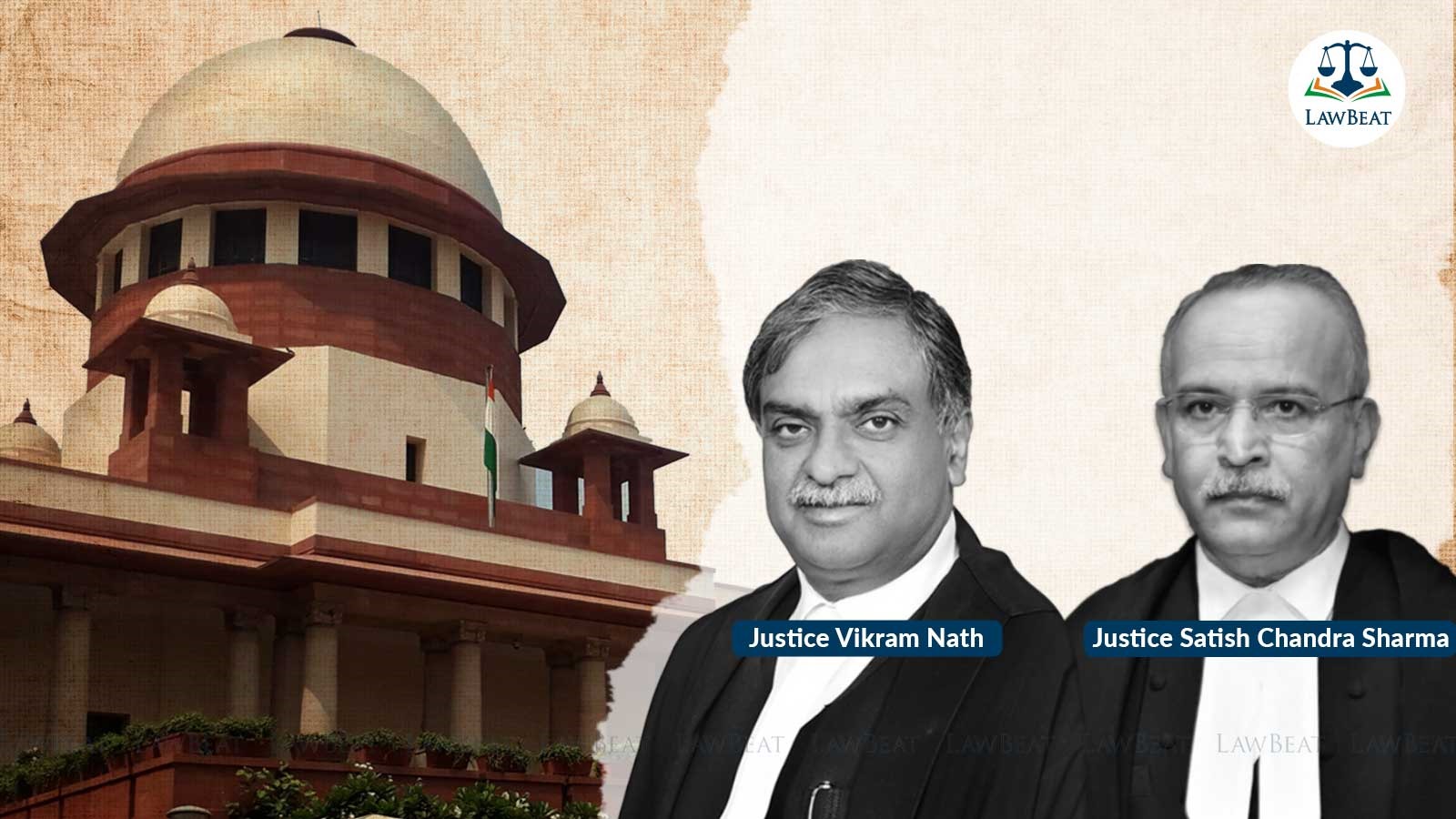SC sets aside High Court's order allowing settlement agreement to quash FIR

Referring to the Supreme Court judgment in 'Gian Singh Vs State of Punjab', (2012), the bench found that the impugned order was erroneous and contrary to principles laid down
The Supreme Court has set aside the Allahabad High Court's order which quashed a criminal case related to abduction and causing grievous injury to a man, relying upon a settlement agreement with one of the victims, even though the complainant was not a party to it.
A bench of Justices Vikram Nath and Satish Chandra Sharma allowed the appeal filed by Anil Mishra, the complainant, against the Allahabad High Court's order dated April 6, 2023.
The apex court said the high court neither secured the ends of justice nor prevented an abuse of process of law.
The appellant lodged a First Information Report on August 07, 1999 under Sections 364, 147, 148, 149 & 323 of the Indian Penal Code. It was alleged that three accused had beaten up the appellant and another person. The accused were wielding guns, rifles, revolvers and pistols; and they further abducted the other person. The charge sheet was filed against the accused under various provisions including abduction.
Against the summoning order, the accused approached the high court with a revision petition, which dismissed their plea.
The accused brought a settlement agreement with the other person before the high court to pray for quashing the FIR.
The high court then asked the trial court to consider the settlement agreement and pass appropriate orders.
The trial court rejected the settlement agreement on the grounds that charge sheets had been filed for offences which were non compoundable. It also noted the appellant, the original complainant, was not a party to the settlement agreement and rather had filed an objection to it.
The accused persons again approached the high court which allowed their plea and set aside the entire proceedings.
Before the top court, the appellant contended the high court erred in law and facts. He claimed there was illegality and perversity in the high court's order as he was an injured complainant and was not a party to the settlement agreement and was not amenable to such a course.
The accused claimed there was no justifiable cause to continue criminal proceedings against them as they entered into a settlement or compromise with the principal victim who was allegedly abducted.
The apex court, after going through the materials placed on record and the arguments advanced, said, "It can safely be concluded that the appellant neither entered into any settlement with the accused persons nor was courting any such idea".
"Accordingly, in view of the circumstances, we fail to understand how the High Court proceeded to quash the FIR; and the proceedings emanating thereof in exercise of its jurisdiction under Section 482 CrPC," the bench said.
Referring to the Supreme Court judgment in 'Gian Singh Vs State of Punjab', (2012), the bench found that the impugned order was erroneous and contrary to principles laid down in it.
"It is our considered opinion that the High Court has certainly erred by quashing (i) the FIR; and (ii) the criminal proceeding(s) emanating from the FIR on the basis of the settlement agreement. The High Court failed to notice that the appellant i.e., an injured victim; and original complainant was not a party to the settlement agreement and nor was agreeable to such a course of action," the bench said.
Case Title: Anil Mishra Vs State of UP & Ors
